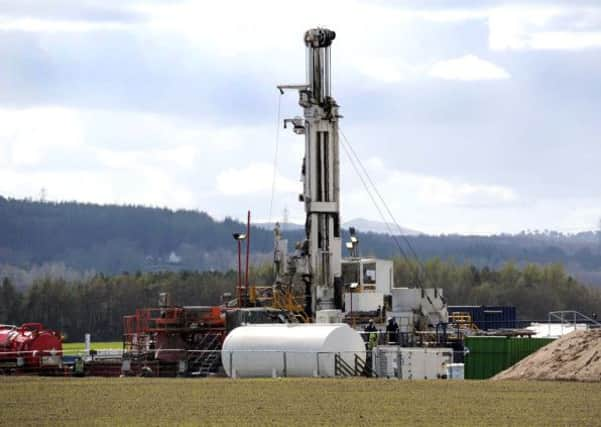Controversial Falkirk gas drilling plan probed


Dart Energy’s controversial proposals would see the drilling of 22 wells to extract coal bed methane in an area near Airth known as Letham Moss.
More than 2,500 objections were made against the company’s plans for the most advanced project of its kind in the UK.
Advertisement
Hide AdAdvertisement
Hide AdThe plan has met with opposition from local residents, campaign groups and both Falkirk and Stirling councils.
Dart Energy insist their plans do not involve hydraulic fracking, commonly known as “fracking.”
However, Friends of the Earth Scotland (FoES) claimed coal bed methane extraction carries similar risks.
The inquiry, in Falkirk, is the UK’s first into a planning application for commercial unconventional gas extraction.
Maria Montinaro, a community councillor and member of Concerned Communities of Falkirk whose group spearheaded a campaign to raise £60,000 to pay for Sir Crispin’s legal services, said she did not believe Dart Energy had prepared their responses well enough to allay local fears.
Montinaro said: “These are controversial issues but they don’t seem to have the answers.”
Fiona Williams, a campigner whose home is near the proposed site, said she was concerned about possible health risks from methane gas.
‘Contingency venting to be avoided’
A spokesman for Dart Energy said that measures would be put in place to avoid problems with methane gas.
Advertisement
Hide AdAdvertisement
Hide Ad“Contingency venting on the gas delivery and water treatment facility would be avoided as far as practicable by use of additional safeguards including equipment design to recognised standards, good process control and continuous monitoring.
“For this reason a contingency venting situation is expected to occur infrequently and is anticipated to be less frequent than once in ten years”
Mark Ruskell, Stirling Green Party councillor said: “It was clear at the inquiry that Dart have applied for infrastructure plant that will allow a vastly larger scheme than the initial 22 wells, which only magnifies concerns about future pollution risk.”
Mary Church, head of campaigns at FoES, said: “By drilling into untouched coal seams and mobilising methane and toxic chemicals to escape through faults in the ground, Dart’s proposals could seriously jeopardise Scotland’s climate targets as well as posing grave questions for local communities.
“In countries like Australia, where the industry is more developed, it has failed to prove that the processes involved are safe and communities are starting to see the devastating impacts on their health and way of life.
Councillor Neil Benny, depute convener for environment,at Stirling Council, said more information was needed before a decision could be reached:
“There are questions surrounding this technique and we need to understand the new technology before we can approve it. We have a responsibility to ensure that whatever goes ahead will be safe, sustainable and unproblematic.”
SEE ALSO: